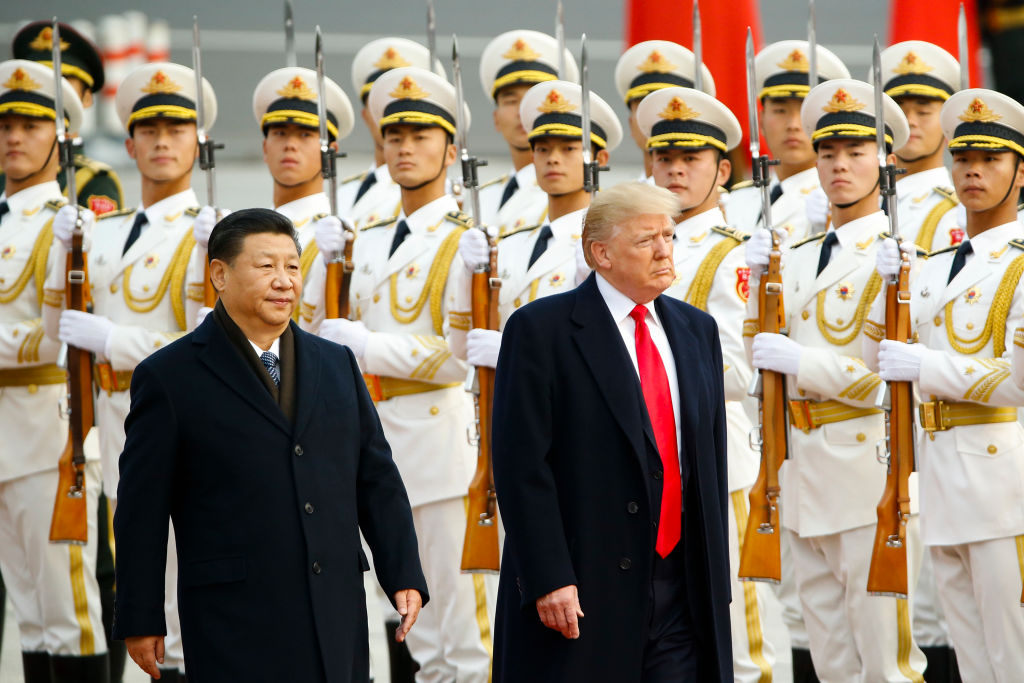As Trump prepares to return to the White House, the President-elect’s cabinet nominees may be unified in their support for him. But they are not so united on how to handle trade, especially with China. These tensions speak to the complexities of the geopolitical challenges facing the United States, but they could also be a source of conflict within the administration in the months ahead.
Trump’s national security picks so far have tended to be hawkish on China. Senator Marco Rubio, the nominated secretary of state, and Congressman Mike Waltz, Trump’s new nominee for national security advisor, have both expressed warnings that the US is in a cold war with China. Meanwhile, one of the top contenders for Treasury, the Trump transition co-chair Howard Lutnick, has now been nominated secretary of commerce after defending Trump’s proposed tariffs in media appearances and campaign stops. In addition, longtime critic of the “free trade” agenda, Robert Lighthizer, remains in contention for some high-level position in his second administration.
Central to their hawkish worldview on China is tariffs, which Trump has called the “most beautiful word in the dictionary”. The President-elect sees this as a major lever of economic policy for a second term and is building an economic team around that vision. Yet nothing is simple with Trump. Despite the trade hawks flocking to his incoming administration, perhaps one of his closest allies also has major investments in China. As the head of Tesla, Elon Musk presides over a global manufacturing network, and Shanghai hosts a colossal Tesla gigafactory. Tesla told the US government in July 2023 that it did not ship vehicles from China into the US market, but the electric-car maker does have global supply chains, which a tariff war could interfere with. With his libertarian leanings, Musk might also have some reservations about tariffs in general. On X, Musk praised as a “good move” the slashing of import taxes by Argentinian president Javier Milei.
Then there is Vivek Ramaswamy — Musk’s partner in leading the new Department of Government Efficiency (DOGE) — whose position points to a potential divide (or at least tension) even within China hawks. While Ramaswamy has defended tariffs on goods from China, he has laid out a “national libertarian” model that also calls for expanding trade with allies, which might be at odds with an agenda of across-the-board tariffs. Supporters of universal tariffs call for rebuilding the US manufacturing base, but high global tariffs could also heighten tensions with potential allies that the United States might need in its strategic rivalry with China.
The heterogeneity of Trump’s cabinet has caused some observers to speculate that the incoming president might be giving himself considerable room to manoeuvre on both trade and China policy. Vicious infighting between various internal factions consumed much of Trump’s first term, and even some populists are wary about repeating that dynamic. To some extent, though, this heterogeneity is understandable, as leaning too far in any single direction could imperil Trump’s second term. While restoring the American industrial infrastructure increasingly seems like an essential national security priority, a trade disruption that is too sharp could send the economy into a tailspin and also cause cascading crises internationally.
Trump sees politics more as hammering out a Manhattan real-estate deal than as some grand contest of ideas. Sometimes, you put on the hard sell. Sometimes, you put up an adversarial façade as a way of getting people to the negotiating table. Eschewing ideology, the President-elect prefers a politics of interest and instinct — and unpredictability. Despite his brand of political conflict, Trump also seems averse to economic turmoil, which a sudden, complete break with China could cause. His ultimate trade policy toward China, then, might focus more on a rebalancing rather than a total severing.











Join the discussion
Join like minded readers that support our journalism by becoming a paid subscriber
To join the discussion in the comments, become a paid subscriber.
Join like minded readers that support our journalism, read unlimited articles and enjoy other subscriber-only benefits.
Subscribe